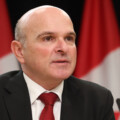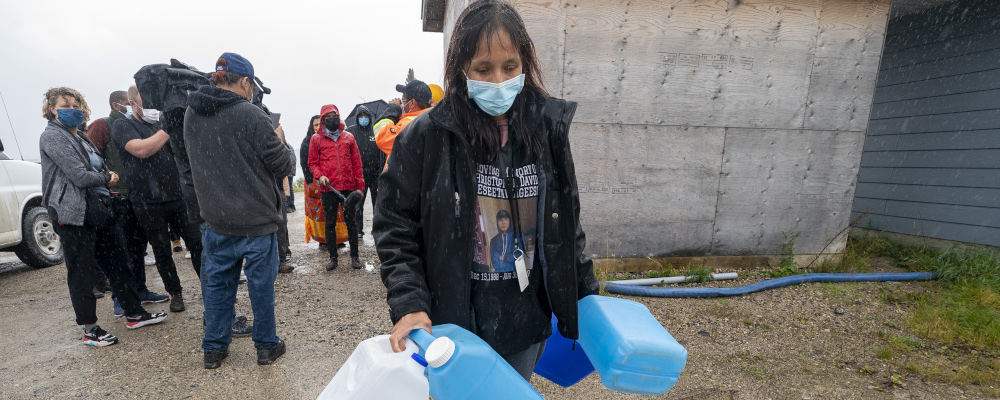Over the coming days, The Hub will publish mandate letters for the incoming cabinet ministers that set out a series of bold policy prescriptions that would cumulatively tilt Canadian politics towards a different and better future.
The best antidote to anger and frustration is aspiration and purpose. The campaign has demonstrated how urgently Canada’s body politic needs such a remedy. There’s no time to waste. It’s time to get to work.
Dear Minister of Indigenous Services
Thank you for continuing to serve the Canadians as Minister of Indigenous Services.
As you know, the country continues to navigate through the most serious public health crisis of our time. The pandemic has had serious impacts on the lives and livelihoods of all and revealed inequities in our society. The circumstances call for a new approach.
The time is now for our government to lay a new and clear the path forward to recovery and prosperity for Canadian families and businesses. The priorities that will pave our road forward to a brighter future: strong body, strong economy, strong mind, strong country. Ensuring vaccinations are secured for every citizen across the country will allow businesses to re-open, resulting in renewed job satisfaction thereby strengthening mental health and boosting our collective economic strength. These priorities will be essential to ensuring that we are fully equipped to take on the challenges of tomorrow.
We are not only required to govern to meet the challenges of every day, but we must also work in a way that prepares us to overcome 20th century realities including climate change, shifting labour market, an aging demographic, reconciliation with Indigenous peoples, among others. These will only be overcome if we continue by working in an open and collaborative way with all levels of government and most importantly, with the Canadian people.
During these times, we are reminded of our strength that is rooted deep into who we are as citizens of the North — hearty, resilient, strong. These, along with our adaptability and agility, will be key to overcoming the challenges ahead of us.
I know that I can count on you to fulfill the important responsibilities in your role as Minister, and that you will do so in a way that upholds the integrity of government ensuring that you are guided by the values of openness, efficiency, and accountability.
As the Minister of Indigenous Services, I ask that you work with your colleagues to deliver on the following:
- Secure clean drinking water for all Indigenous communities by eliminating all long-term drinking water advisories and supporting partnerships with regional governments to develop sustainable water systems.
- Address the mental health crisis among Indigenous peoples as a result of intergenerational trauma by supporting the implementation of Indigenous mental health and wellness strategies, led by Indigenous communities and Indigenous mental health and wellness organizations in both rural and urban settings.
- Tackle the rental housing and home ownership crisis within both Indigenous rural and urban communities by partnering with Indigenous communities and housing organizations to develop and implement a housing strategy.
- End hunger and support Indigenous food sovereignty by partnering with Indigenous communities to develop a sustainability strategy that ensures access to affordable, nutrient-dense, and culturally-appropriate foods.
- Work with the Minister of Finance and the Minister of Crown-Indigenous Relations to redesign the fiscal relationship so it ensures that Indigenous communities are afforded the same standard services (ie. water, health, housing, education, etc.) enjoyed by non-Indigenous communities and citizens across the country – and – allows for these funds to be managed and distributed by Indigenous governments.
I am counting on you to fulfill these responsibilities and help to build the path to a stronger and more prosperous future for all Canadians.
Dear Minister of Crown-Indigenous Relations
Thank you for continuing to serve the Canadians as Minister of Crown-Indigenous Relations.
As you know, the country continues to navigate through the most serious public health crisis of our time. The pandemic has had serious impacts on the lives and livelihoods of all and revealed inequities in our society. The circumstances call for a new approach.
The time is now for our government to lay a new and clear the path forward to recovery and prosperity for Canadian families and businesses. The priorities that will pave our road forward to a brighter future: strong body, strong economy, strong mind, strong country. Ensuring vaccinations are secured for every citizen across the country will allow businesses to re-open, resulting in renewed job satisfaction thereby strengthening mental health and boosting our collective economic strength. These priorities will be essential to ensuring that we are fully equipped to take on the challenges of tomorrow.
We are not only required to govern to meet the challenges of every day, but we must also work in a way that prepares us to overcome 20th century realities including climate change, shifting labour market, an aging demographic, reconciliation with Indigenous peoples, among others. These will only be overcome if we continue by working in an open and collaborative way with all levels of government and most importantly, with the Canadian people.
During these times, we are reminded of our strength that is rooted deep into who we are as citizens of the North – hearty, resilient, strong. These, along with our adaptability and agility, will be key to overcoming the challenges ahead of us.
I know that I can count on you to fulfill the important responsibilities in your role as Minister, and that you will do so in a way that upholds the integrity of government ensuring that you are guided by the values of openness, efficiency, and accountability.
As the Minister of Crown-Indigenous Relations, I ask that you work with your colleagues to deliver on the following:
- Take immediate action to reconcile past injustices perpetrated by the government of Canada against Indigenous children and families by working with Indigenous survivors, families of the children who never returned home, and communities to develop a strategy to implement the TRC Calls-to-Action #71 through #76, and provide the funding required to support this plan.
- Support a non-partisan approach to addressing inequities experienced by Indigenous peoples and ensure government accountability for reconciling the Crown-Indigenous relationship by implementing TRC Calls-to-Action #53 through #56, which includes the establishment of the National Council for Reconciliation with the mandate to monitor, evaluate, and report annually to Parliament and the citizens of Canada on the government’s progress on reconciliation.
- Honour Indigenous autonomy and self-government by working with Indigenous communities to develop a mechanism by which signatories to Treaties that are deemed “historic” (before 1975, roughly) can engage in negotiations with government with the goal to uphold the modern applicability of the Treaty. Explore the possibility of building on the mandate of the Specific Claims Tribunal and/or creating a new body that adopts a more culturally appropriate dispute resolution system, like New Zealand’s Waitangi Tribunal, to support these efforts.
- Work with the Minister of Finance and the Minister of Indigenous Services to redesign the fiscal relationship with those Indigenous communities who are not signatory to modern Treaties in a way that ensures Indigenous communities are afforded the same standard services (ie. water, health, housing, education, etc.) enjoyed by non-Indigenous communities and citizens across the country – and – allows for these funds to be managed and distributed by Indigenous governments.
- Support Indigenous prosperity and independence by creating the Canadian Indigenous Opportunities Corporation to guarantee loans to Indigenous communities and groups to make investments and participate in resource and energy sector projects.
I am counting on you to fulfill these responsibilities and help to build the path to a stronger and more prosperous future for all Canadians.
Recommended for You

J.D.M. Stewart: Prime Minister Laurier does not belong in the dustbin of history

Aaron Pete: As an Indigenous person, Trump’s annexation jokes are no laughing matter. I’m proud to be Canadian

Harold Calla: Unlocking Indigenous economies is vital to achieving Canada’s climate goals—and prosperity

The Weekly Wrap: Reject racialism. Embrace meritocracy




